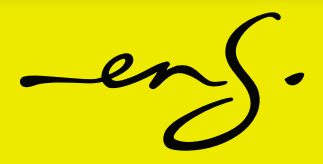As of the end of 2019, the Ugandan Patent Office exercised its rights under the Trade-Related Aspects of Intellectual Property Rights (TRIPS) Agreement as a least-developed country (LDC) to exclude pharmaceutical inventions from patent protection and informed the African Regional Intellectual Property Organisation, of which it is a member country, that it is no longer granting such patents. Although the Ugandan Patents Act had originally included such an exclusion, this was originally to end on 1 January 2016, but that period has now been extended until 1 January 2033.
The extension comes off the back of a number of African World Trade Organisation members that supported a proposal (co-sponsored by India, South Africa, Eswatini and Kenya) to waive certain provisions of the TRIPS Agreement for the prevention, containment and treatment of COVID-19, including:
- South Africa;
- Eswatini;
- Kenya;
- Tanzania on behalf of the African Group; and
- Chad on behalf of the LDC members, Egypt, Tunisia, Mali, Mauritius and Mozambique.(1)
It appears that this is an opportune time for many LDCs to extend the TRIPS exemptions beyond the COVID-19 pandemic in order to address the many challenges which they face, especially regarding neglected tropical diseases.
While Uganda has taken the lead on formally utilising available exemptions, many other countries are considering their options with the available policy positions appearing to indicate a move towards limiting or restricting the scope of patent protection for pharmaceutical inventions. At this stage, it is unclear whether any of these policy positions will have retrospective effect.
A further factor that may make such an opportunity attractive is that there are high rates of return on foreign direct investment in African LDCs (approximately 13%).
At present, there are 33 African LDCs,(2) so with the estimated value (and growth rate) of the African pharmaceutical, biosimilar and diagnostic market, this will become a valuable opportunity for generic companies.
In short, a generic company could set up its dossiers and manufacturing to service Africa and scale up as patent expiry happens in other countries.
On the flip side, lobbyists for big pharmaceutical companies are expected to push against countries utilising these TRIPS mechanisms. For example, South Africa, Kenya and Nigeria as some of the more commercially significant markets would be obvious targets.
TRIPS measures aside, most African countries do not allow inventions relating to methods of medical treatment, surgery or diagnosis on the body to be patented, but do allow claims to pharmaceutical products, as well as claims to a first medical use and second and subsequent medical use claims. However, there are some countries with additional restrictions and others with fewer restrictions on pharmaceutical inventions. Details relating to these exceptions are shown in the table below.
|
Angola: No method of treatment, surgery or diagnosis claims, no pharmaceutical compound claims and no first, second and subsequent medical use claims are patentable, but apparatus and processes for manufacturing pharmaceutical or medicinal products are patentable. |
|
Burundi: No method of treatment, surgery or diagnosis claims are patentable and pharmaceutical product inventions are excluded from patent protection in terms of TRIPS until 1 January 2016. |
|
Democratic Republic of the Congo: No method of treatment, surgery or diagnosis claims are patentable; pharmaceutical compound claims and first medical use and second and subsequent medical use claims are allowed, but the duration is only 15 years for pharmaceutical patents. |
|
Egypt: No method of treatment, surgery or diagnosis are patentable; pharmaceutical compound claims and first medical use and second and subsequent medical use claims are allowed, but duration is only 10 years for pharmaceutical patents. |
|
Libya: No method of treatment, surgery or diagnosis, pharmaceutical compound claims and first medical use or second and subsequent medical use claims are patentable. Processes for manufacturing pharmaceutical or medicinal products are patentable, but the duration is only 10 years. |
|
Madagascar: Although methods of treatment, surgery or diagnosis are allowed, no pharmaceutical compound claims and no first medical use and second and subsequent medical use are allowed. |
|
Malawi: There is only limited restriction. Methods of treatment, surgery or diagnosis as well as first, second and subsequent medical use claims are allowed. Pharmaceutical compound claims are also allowed, provided that they do not relate to an admixture of known ingredients. |
|
Nigeria: There is no restriction. Methods of treatment, surgery or diagnosis as well as pharmaceutical compounds and first, second and subsequent medical use claims are allowed. |
|
Sudan: There is no restriction. Methods of treatment, surgery or diagnosis as well as pharmaceutical compounds and first, second and subsequent medical use claims are allowed. |
In any event, there are clear opportunities for entering the African market for pharmaceutical, biosimilar and diagnostic technologies that are unpatented in Africa.
Endnotes
(1) See here.
(2) Angola, Benin, Burkina Faso, Burundi, Central African Republic, Chad, Comoros, Democratic Republic of the Congo, Djibouti, Equatorial Guinea, Eritrea, Ethiopia, Gambia, Guinea, Guinea-Bissau, Lesotho, Liberia, Madagascar, Malawi, Mali, Mauritania, Mozambique, Niger, Rwanda, São Tomé and Príncipe, Senegal, Sierra Leone, Somalia, Sudan, South Sudan, Tanzania, Togo, Uganda and Zambia.




